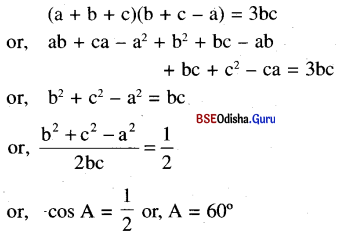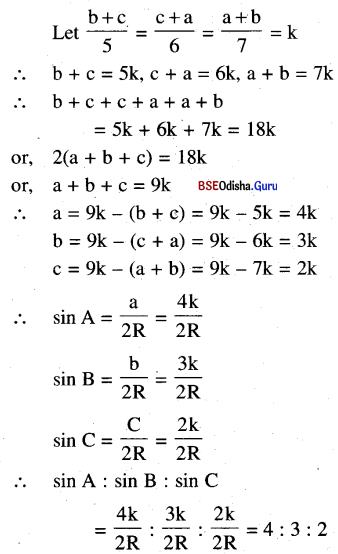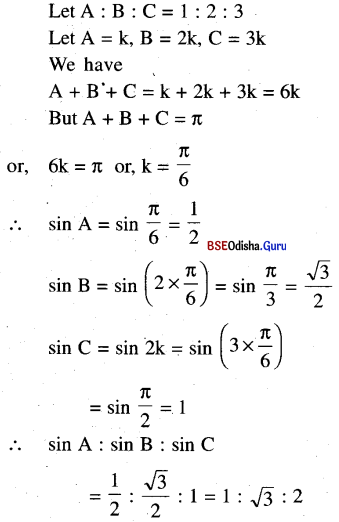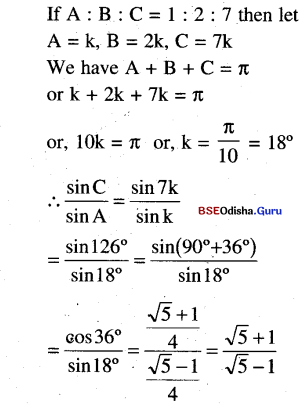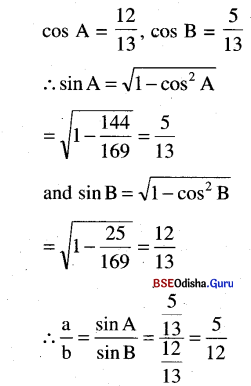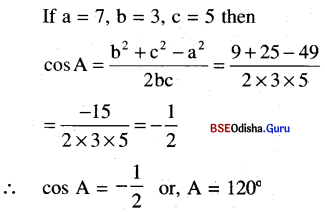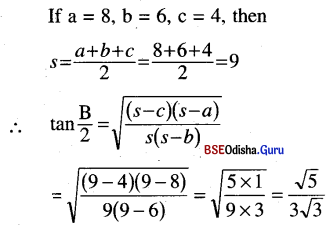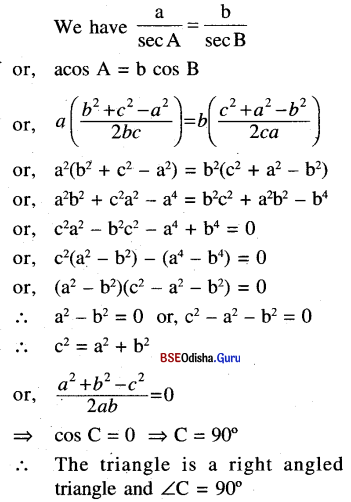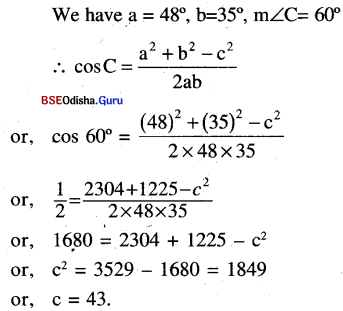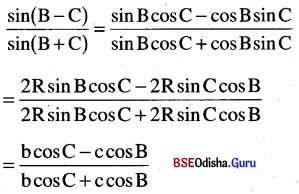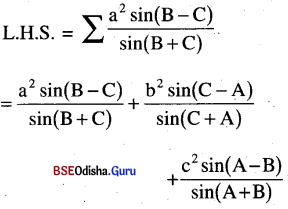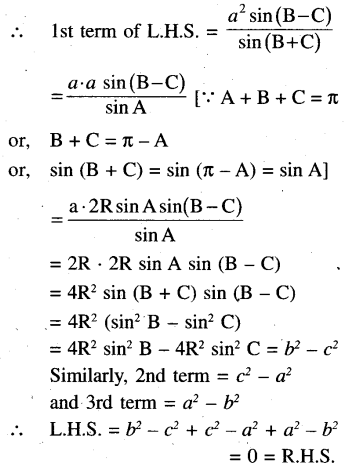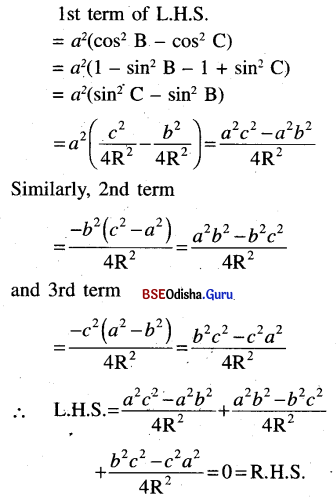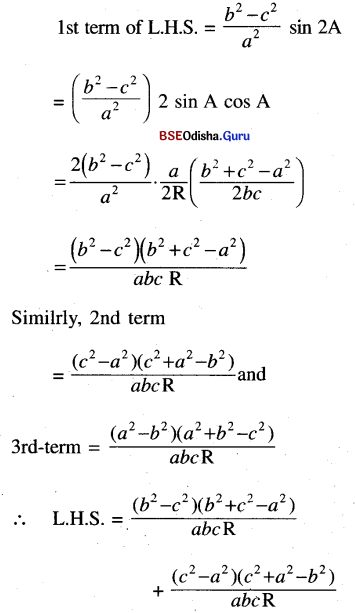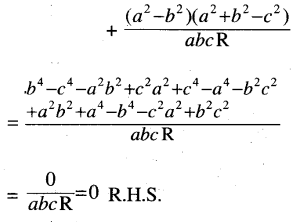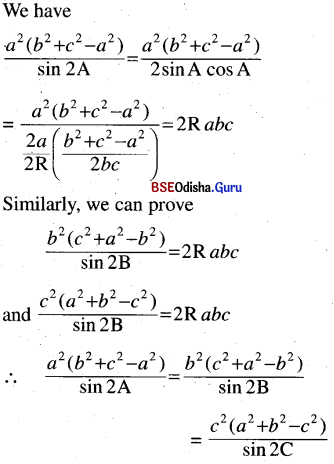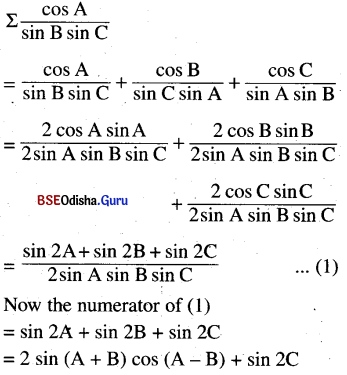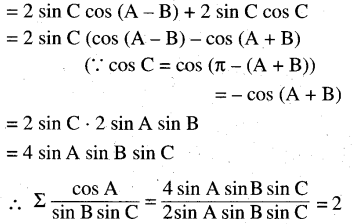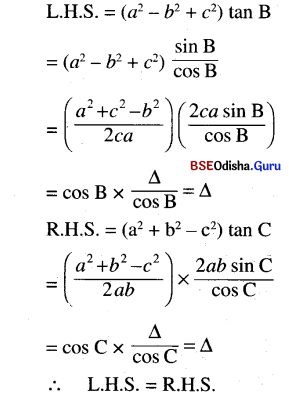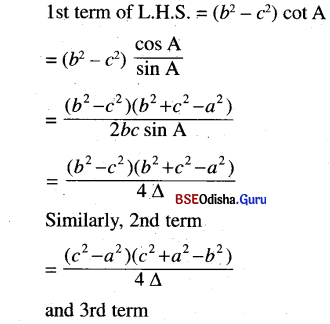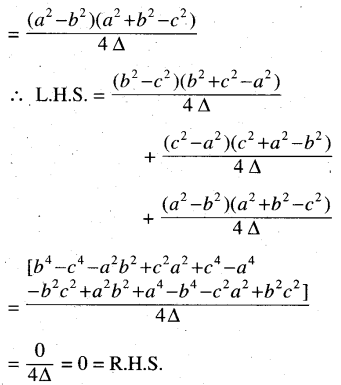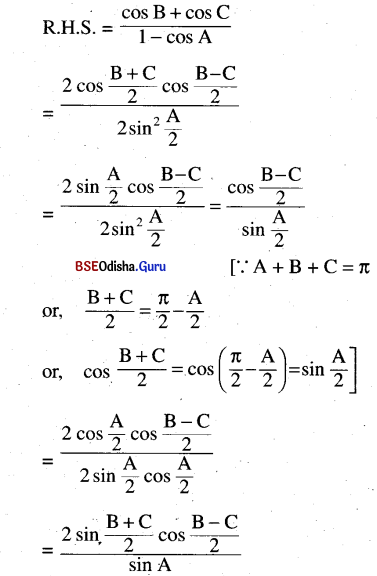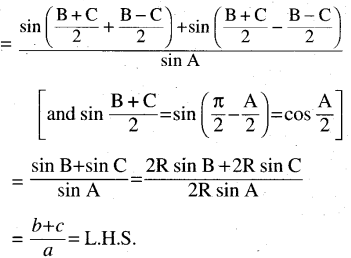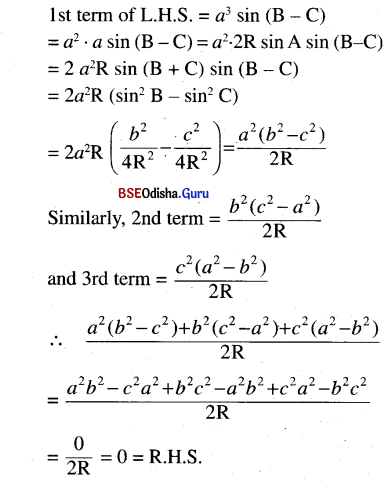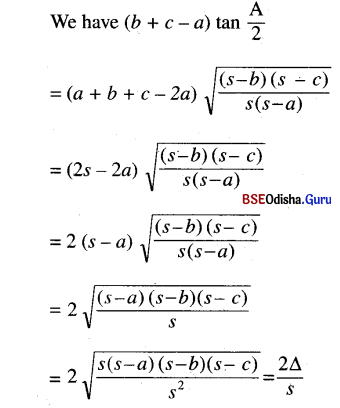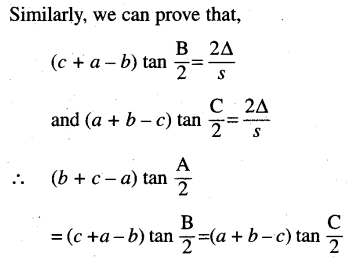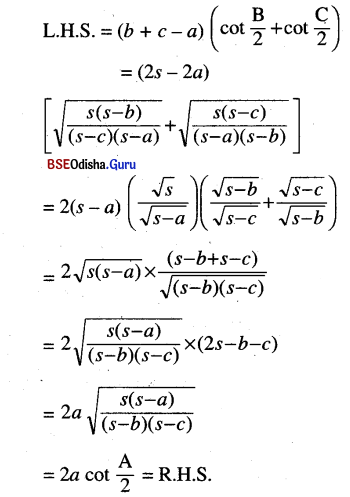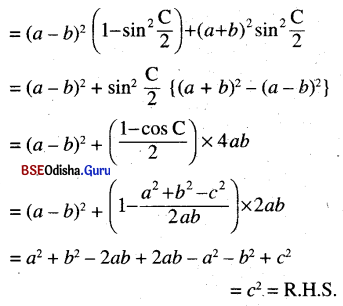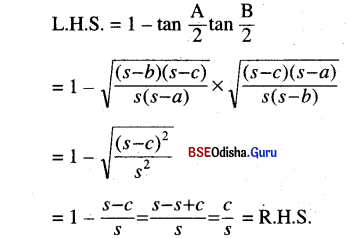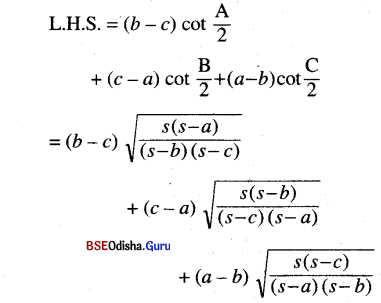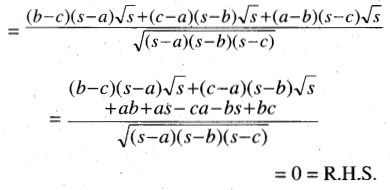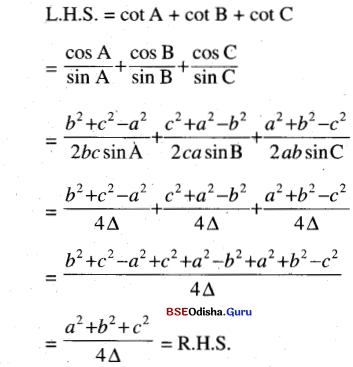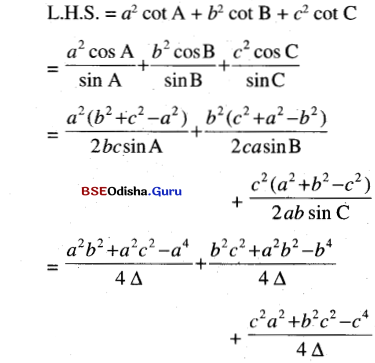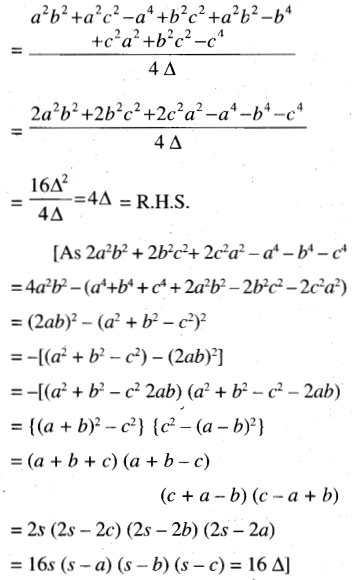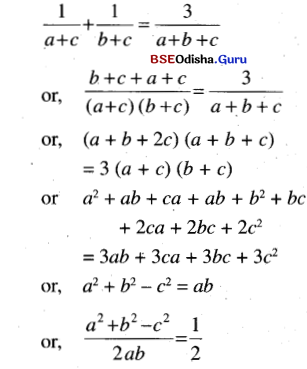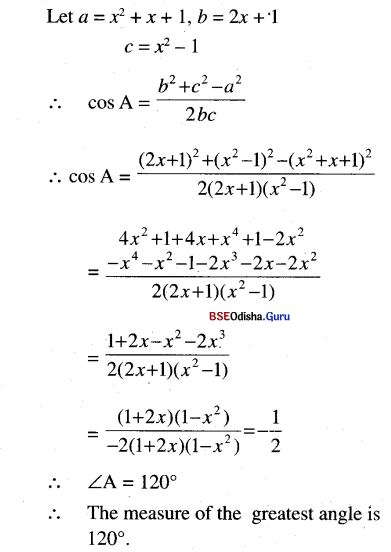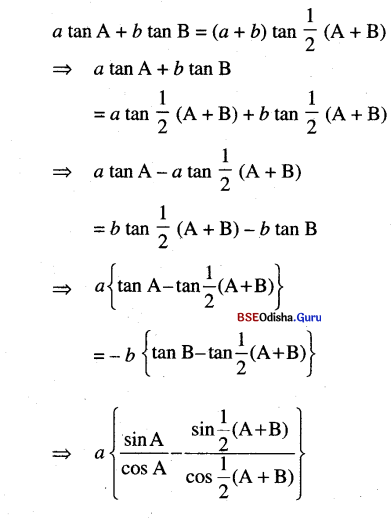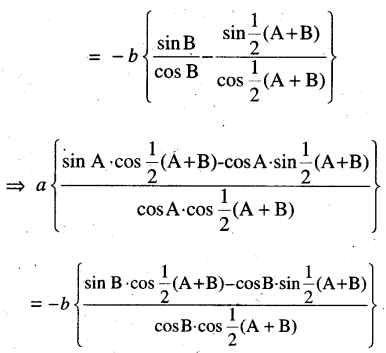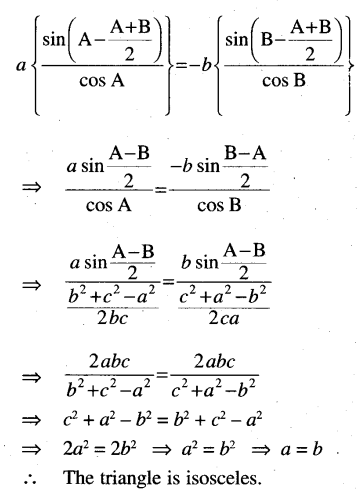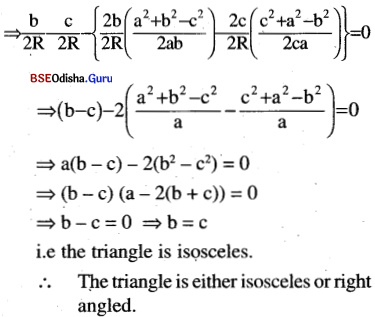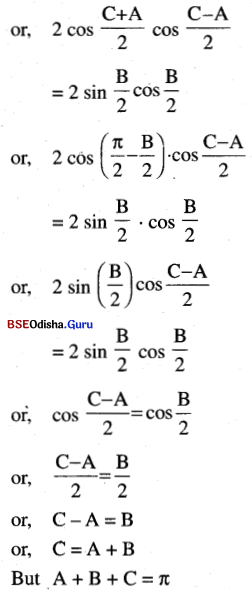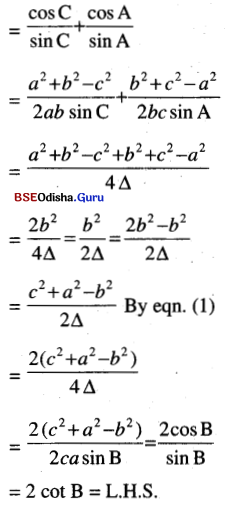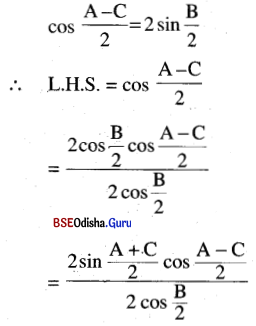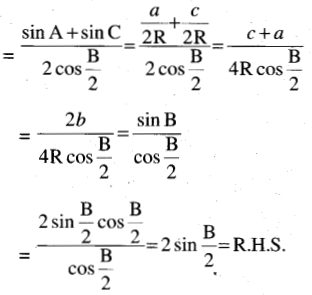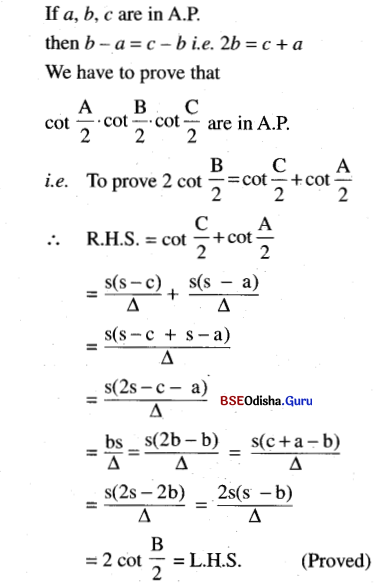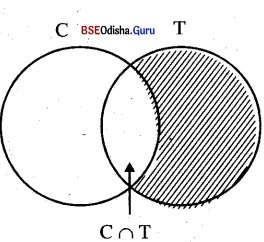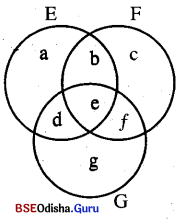Odisha State Board CHSE Odisha Class 11 Political Science Solutions Unit 5 Constitution at Work-II Long Answer Questions.
CHSE Odisha 11th Class Political Science Unit 5 Constitution at Work-II Long Answer Questions
Long Type Questions With Answers
Question 1.
Describe the procedure of the Presidential election in India. Or, Explain how the President is elected?
Answer:
The President of India is elected indirectly by an electoral college for a term of five years.
Qualifications:
A Presidential Candidate shall possess the following qualifications.
- He / She must be a citizen of India.
- He / She must be above 35 years of age
- He / She should possess all other qualifications to become a member of Lok Sabha.
The procedure of Election The President is elected through proportional representation and single transferable vote system. The electoral college shall consist of The elected members of Lok Sabha, Rajya Sabha, and Rajya Vidhan Sabha. The elected members of the Delhi legislative assembly and the Puducherry legislative assembly also take part in it.
In order to make the President a true representative of the people the constitution has tried to bring parity of votes between the total number of votes cast by MPs and MLAs. This system are followed to maintain a balance between the center and states. Die’s constitution has devised a formula to determine the value of the votes of MLAs and MPs.
\(=\frac{\text { Total population of a state }}{\text { No. of elected MLAs }}\)÷1000+1
Similarly the values of vote of an MP is
\(=\frac{\text { Total value of votes of MLAs }}{\text { No. of elected MPs }}\)
Similarly, the value of the vote of an MP is the Total value of votes of ML As No. of elected MPs Preferential voting In this system, each voter shall cast as many votes as there are candidates. At the time of counting the 1st preference votes are taken into consideration and a candidate is declared elected if he secures a fixed quota or not.
If no candidate gets the required number then the candidate securing the lowest number of votes is eliminated and his 2nd preference votes are taken into consideration. If nobody secures the quota the process continues. After his election, the Chief Justice of India reads out the oath of office and secrecy of the President before he enters his office.
Question 2.
Discuss the powers and position of the President of India?
Answer:
The President is the constitutional head of state in India and the constitution has vested all executive powers in him. He exercised all these powers on the advice of the Union Council of Ministers. The administration is run in his name but he does not exercise real powers.
Executive Powers:
The President is empowered to exercise supervision over the administration of the state. He gives appointments to the Prime Minister and other members of the Union Council of Ministry, Chief Justice and Judges of the Supreme Court and High Courts, Governors of State, Members of the Election Commission, Finance Commission, the Attorney-General, and CAG, etc.
He is responsible for preserving, protecting and defending the constitution of India. President is also directly responsible for the administration of the union territories in India. However, all these above-mentioned powers are not independently exercised by the Presidential of India. There is a Council of Ministers headed by the Prime Minister, whisk advises the President in the discharge functions.
Legislature Power:
Article – 123 of the Constitution of India discusses about the legislative Power nf the President of India is a part of the union legislature. Without the assent of the President, no bill will become an Act. It is the President who summons and prorogues the House of Parliament and can dissolve the House of People. He may summon the joint sitting of both the Houses of the Union Parliament. It is customary on the part of the President of India to address both the Houses of the Union Parliament separately.
His legislative power also includes the power to nominate 12 members to Rajya Sabha and 2 members to Lok Sabha from Anglo Indian community. Certain kinds of bills cannot be introduced into the Parliament and state legislature without the assent of the President of India. Further, the legislative power of the President of India also includes the power to promulgate ordinances during the recess of the Parliament.
Judicial Power:
Article -122 of the Constitution of India discusses the Judicial powers of the President of India which includes the power to grant pardon, reprieves, remission of punishment, and remit the sentence to death. The above power of the President can be used as against any kind of Court’s Judgement to which the President possesses the power to pardon or remit the punishment.
Financial Power:
The President of India not possess any financial power. Rather all the expenditures are done in the name of the President of India. He is the guardian of the public funds. He supervises the annual budget and the money bills introduced into the Parliament must receive the recommendation of the President of India. The President also determines the share of various revenue taxes between the central and the state governments.
Military Power:
The President of India is constitutionally considered as the Supreme Commander of the Air, Navy, and Military. Forces in India. It is the President of India who declares wars and concludes peace. Any military pact or treaty must be done in the name of the President of India.
Diplomatic Power:
All sorts of diplomatic or foreign relations are maintained in the name of the President of India. Any treaty with outside foreign countries signed must bear the name and authority of the President of India. It is the President of India who appoints and accredits the diplomatic agents to foreign countries and receives the diplomatic envoys.
Emergency powers:
The Constitution under part XVIII, Art.- 352 to 360 has discussed three types of emergency. The President has been authorized to exercise the power in grave situations, of crises to tackle abnormal situations. The President under Art-352 can declare National Emergency, under – 356 State Emergency, and under Art- 360 Financial Emergency. All these powers are discharged on the advice and recommendations for the same. But these powers have strengthened the hand of the President.
Position:
The President of India holds a unique position in the constitutional system. He is an integral part of the union executive although his authority is nominal. He performs his functions on the advice of the Central Council of Ministers. The cabinet and the Prime Minister decide everything in the name of the President. He has limited scope to exercise real authority.
But the President is not a golden cipher. In important circumstances, the President can exercise his discretion io making a choice of the Prime Minister in a coalition Govt, and in the dissolution of Lok Sabha. He can return any proposal of the Cabinet for reconsideration. He is a constitutional head who holds a position of prestige. He is there to preserve, protect and defend the Constitution. He is a symbol of national unity.
Question 3.
Discuss the constitutional status of the Indian President. Or, The President of India has vast powers but little discretion. Discuss. Or, The President is merely a constitutional figurehead?
Answer :
There is a great controversy among scholars in regard to the powers and position of the. President of India. Some are of the view that the President of India with such vast powers may become the dictator of India. The late first President of India Dr.Rajendra Prasad was of the opinion that the constitutional provision did not clearly indicate about the President is the titular or nominal head of the state.
But on the other B.R. Ambedkar was of the opinion that the President of India must act as titular head of state. He said in the Constituent Assembly that If President does not act upon the advice of the ministry it will be tantamount to a violation of the Constitution and the shall be liable for impeachment. Let us discuss at our own the powers and positions of the President in the context of the Indian constitutional setup. In the first place, the Constitution provides that there shall be a Council of Ministers to aid and advice the President of India.
Though there is no mention that such aid and advice rendered by the Council of Ministers are binding on the President of India: In the 42nd constitutional amendment provides a concrete fact in favor of the titular status of the chair. The 42nd constitutional amendment of 1976 states clearly that the aid and advice rendered by the Council of Ministers is binding on the President.
Secondly, the Parliamentary form of government is marked by two types of executive i.e, the real executive and the titular executive. It is fact that in all parliamentary fonts of government the cabinet will act as the real executive and there shall be another office of the executive which must be the titular executive and all the executive work will be carried out by the real executive in the beign honor of the nominal executive.
If the cabinet is the real executive in Indian Parliamentary context, the office of the President must be titular. Thirdly, the practice of the parliamentary form of government speaks about responsible executives. The executive must remain answerable to its citizens. The Council of Ministers in the parliamentary form of government are directly chosen from among, the legislation.
Those legislations i.e. the members of the cabinet sit in the legislature and answers all question relating to the executive functions. But the Indian President is not answerable to the legislature for which the Presidentship must be attributed to its nominal aspect and the President of India must be treated as the nominator titular’ head of the state.
Fourthly, the Constitution provides that the President m&y refer back the advice rendered by the Council of Ministers for reconsideration but after reconsideration, the President is about to accept the advice rendered by the cabinet. Hence, he must be treated as the nominal or titular head of the state.
Fifthly, a few constitutional experts fear that the emergency powers of the President of India may enable the President to exercise his dictatorship over the country: But there is no reality f the conception. In spite of the above constitutional restrictions, the President of India might not be equated with the King of the British Parliament who is not more than a cipher. However the working of the Constitution of India.
since 1950 clearly shows, that personal charisma or liberty caliber can expert a remarkable influence on the working of Indian parliamentary constitutional system. The constitution of India has provided a source sort of discretionary powers to the President of India and the. President may exercise this discretion on two occasions, namely.
- Appointment of the Prime Minister of India and
- Secondly with regard to the dissolution of the parliament.
Here we must, from, the constitutional history of India, cite the example of 1979 when existing President N . Sanjeev Reddy by using his discretion appointed Charan Singh as the Prime Minister of India. Again also in 1990, the then easting President appointed Chandra Sekhar to government exercising his discretion. So it can be said that the President of India is not so weak as the British monarch and as powerful as the President ofU.S.A.
Though the President of India does not possess real executive work yet he can direct advice and suggestions to the cabinet for modification forbidding the possibility of growth of arbitrary administration. And in some occasions, the President of India is well to do exercise his discretion. He cannot be compared with a just rubber stamp in the affair of the administration of India.

Question 4.
Discuss the emergency powers of the President of India?
Answer:
The constitutional fathers in order to tide over from the incredible situation have provided the emergency power, of the President of India. The idea of the emergency provisions has been greatly included in the provisions of Emergency working in the Weimar constitution Germany. The constitutional fathers, considering, the heterogeneity aspect of the Indian people; have incorporated the emergency, provisions into the Constitution of India with a view to strengthening the Unity and integrity of the country in times of grave national crisis.
Normally the Constitution provides three kinds of emergency powers of the President of India. There are :
- National Emergency: According to Article 352 of the Constitution.
- State Emergency or President Emergency: According to Article -356.
- Thirdly, the Financial Emergency Under Article 360 these are three types of emergencies are discussed below separately.
National Emergency:
According to Article- 360 of the Constitution of India President can declare the National Emergency on the ground of the grave dangers faced by the country. If the president feels that a grave situation exists out of war, external disturbance or internal armed rebellion in any part of the country or in the whole.
He may declare a national emergency for the entire country. The President must declare on the advice of the Council of Ministers. The 44th Constitutional Amendment of India say that with regard to the proclamation of a national emergency the President must be advised with written documents. Ordinarily emergency, once declared remains up to the expiry of one month within which the Union Parliament must approve the declaration of emergency.
If the declaration of emergency is approved by the Parliament it will continue up to six months. This process will continue in the gap of every six months until the normal situation returns back. If there is the dissolution of the Lok Sabha the Rajya Sabha must approve it and in the eve of the new Lok Sabha, the Mouse must approve it within 30 days of its existence.
The Effect of National Emergency:
- The Union legislature legislates in the state list
- The center can direct the state administration on any matters.
- Constitutional sources of revenues between the center and the state can be modified by the President.
- The fundamental rights in general and the right to freedom according to Article – 19 of the Constitution cease to exist temporarily.
State Emergency or Presidential Emergency:
Article 356 of the Constitution of India deals with Presidential emergencies. The Constitution in its Article-356 says that if the President on the basis of the report of the Governor of the state or otherwise feels satisfied that there is a breakdown of the constitutional machinery in a particular state he can proclaim a Presidential emergency. The Parliament must approve the declaration of emergency within two months. It can continue for a maximum period or three years.
Effects of State Emergency:
- Under Article – 356, during State Emergency all functions of the state government is assumed by the President of India.
- All powers of the state legislature is assumed by the union legislature.
- The Parliament may also delegate these powers to the President.
Financial Emergency:
The third type of emergency is known as the financial emergency which is promulgated by the President of India. Article 360 of Constitution of India says that if the President feels that a situation has. arisen whereby the financial stability of India or any part thereof is threatened, he may proclaim a financial emergency. The promulgation of a financial emergency must be approved by the Union Parliament at the expiry of two months without which the financial emergency will cease to exist. There is no limitation in case of a financial emergency.
Effects of Financial Emergency:
- President may direct the state government to observe certain principles in the matter of public expenditure.
- The salary of the central government and the state government employees may be reduced.
- The money bill of the state legislature may be reserved for the consideration of the President.
- Allocation of revenues between the central and state government may be modified by the President in the interest of the nation.
From the above discussion of the emergency powers of the President of India it is clear that during a national emergency the entire country is transformed into a unitary state giving a free hand to the. President of India to rule over the country freely and fairly.
Question 5.
Discuss the qualifications, privileges, and functions of the Vice-President of India?
Answer:
The Constitution of India under Article – 63 provides that there shall be a Vice¬President of India who will be elected by the two Houses of the Union Parliament on the basis of Proportional representation by means of a single transferable vote. The Vice-President occupies the next highest office of dignity after the President. The Vice-President of India is the Chairman of the Rajya Sabha.
The constitutional provision was the Vice-President of India must be elected in the joint sitting of the Union Parliament, however, the 10th Constitutional Amendment Act. In 1961 dropped the provision of the Joint Sitting of Parliament was. A candidate for the office, of the Vice-President of India, must possess the following qualifications without which he would not be entitled to the office of the Vice-Presidentship in India.
Qualification of Vice-President:
Article-66 of the Constitution of India deals with the qualifications of the Vice-President in India which says that a person for the Vice Presidentship.
- the lie must be a citizen of India.
- He must have completed 35 years of age.
- He must have the necessary qualifications to be a Member of the Council of States.
- He must not hold any office of profit either under the state government or under Central Government. If he holds such office he must vacate in soon after the election.
Term Salary:
The Vice-President of India is ordinarily elected,d for a term of five years. Before the expiry of the term, he may resign from his post or he also may be impeached by the Union Parliament. He receives a salary of Rs. 1,25,00 per month. Powers and the Functions of the Vice-President of India. The Vice-President of India acts as the Ex-officio Chairman of the Rajya, Sabha. He also possesses the right to vote in case of there is a tie. The Vice-President also represents in various ceremonial occasions.
He is the sole protector of the rights and liberties of the members of the Rajya Sabha. The Vice-President also performs the duties of the President due to the absence, illness or registration of the President of India. In case of the death of the President of India, he also succeeds to the office of the President until a further election is held and new President is elected to the office of the Presidentship.
Some critics opine that the office of the Vice-President in India is Superfluous in the context of the constitutional setup of India yet the conception is not fully irrelevant because the. Vice-President occupies the social highest office of dignity and he is related to a number of cultural institutions in an ex-officio capacity. The Vice-President also acts as the Chancellor of Delhi University and the office of the Vice¬Presidentship serves as a training group for future Presidentship.
Question 6.
Discuss the organization and function of the Council of Ministers?
Answer:
The practice of the parliamentary form of executive essentially rests on two types of executive i.e the real executive and the nominal executive. The President acts as the nominal head of the state and the Council of Ministers enjoy real executive power Article 74 of the Constitution of India says that there shall be a Council of Ministers, headed by the Prime Minister to aid and advise the president of India and the President shall act in accordance with the advice rendered by the Council of Ministers.
Further, the aid and advice rendered by the President of India, as per to the 42nd Constitutional Amendment, is binding on the President of India. Again Article – 75 of the Constitution of India tells that the ministers shall hold office during the pleasure of the President of India and the Council of Ministers shall remain collectively responsible to the union legislature. Organization or Formation of the Council of Ministers.
Article – 75 (1) of the Constitution of India clearly states that the Prime Minister of India shall be appointed by the President of India and the other ministers will be appointed by the President on the basis of list furnished by the Prime Minister of India. In actual practice, the President possesses little or no power with regard to the appointment of the Ministers. The Prime Minister is solely responsible for the formation or organization of his cabinet. In India, the Council of Ministers consists of four categories of Ministers which are discussed below.
Cabinet Ministers:
Cabinet Ministers are the senior Ministers in the Council of Ministers who are the central body in the Council of Ministers who actually carry out the executive business of the government.
State Ministers:
The Ministers of State constitute the second category of ministers below the. Cabinet Ministers. The Ministers of the State do not attend the meeting of the Cabinet.
Deputy Ministers:
The Deputy Ministers constitute the third category of ministers who stand below the rank of the Minister of State. Ordinarily, they do not hold any portfolio independently or any executive portfolio. The Deputy Ministers assist the Cabinet Ministers and the Ministers of the State in their functions.
Parliamentary Secretaries:
The Parliamentary Secretaries constitute the fourth rank in the Council of Ministry. Parliamentary Secretaries are not the real members of the Council of Ministers. They do not possess any power of execution of laws rather they only inform the ministers and give reports. Each ministry has its own Parliamentary Secretaries.
Functions of the Council of Ministers:
In India, the Council of Ministers headed by the Prime Minister carries out all the executive functions with the help of the executive officials. The President being the nominal head of the state acts upon the aid and advice of the Council of Ministers. So the entire function of the state are carried out by the Council of Ministers. The following are some of the functions of the Council of Ministers. Though nowhere in the Constitution there is mention of the functions of Council of Ministers.
Formation and Implementation of Policies:
Though constitutionally Parliament is responsible for determining national and foreign policies yet in practice it is the Council of Ministers that determines that national and foreign policies. It is the cabinet that initiates policies and after the approval by the Parliament, the Cabinet initiates administrative details.
Supervision and Control of Administration:
Secondly, the Ministers supervise and control the administration of the state there are civil servants who function under the ministers and the minister being the departmental head supervises and controls the functions and activities of their respective departmental employees.
Coordination of Activities:
Though there are different ministers in charge of specific departments yet no function of the government of India will be carried out unless there is coordination among the various .departments. It is a cabinet which coordinates among the various departments.
Legislative Functions:
All legislative functions, though’ is approved by the union legislature, yet in practice, it is the cabinet minister who introduces, prepares, and pilot all important bills in the Parliament. The Cabinet approves all draft legislation proposed to be introduced in the Parliament.
Financial Functions:
It is the Cabinet which is responsible for the financial expenditure and functions of state. Though finance is sanctioned and authorized by the President of India yet in practice it is the Cabinet or the Council of Ministers which is responsible for all financial functions with the approval of the Lok Sabha, The Finance Minister in coordination with other minister prepares the annual budget of the Country. The other functions of the Cabinet may be referred to the functions, of appointments of key posts, settlement of inter-departmental disputes, approval of proposals for legislation, etc. may be included in the function of the Council of Ministers.

Question 7.
Discuss the powers and role of the Prime Minister of India in the context of the Indian Parliamentary form of Government?
Answer :
Article 74 (1) of the Constitution of India states that there shall be a Council of Ministers headed by the Prime Minister to aid and advice the president. India. In any parliamentary form of government, the Prime Minister occupies a very top position. Appointment of the Prime Minister Article – (75) (1) of the Constitution of India reads that the President shall appoint the Prime Minister and other ministers will be appointed fey the President of India on the basis of information supplied by the Prime Minister of India.
However, the Constitution of India is silent in regard to how the President will select the Prime Minister of India. Hence it is the convention of the Parliamentary form of Government that the leader of the majority party in the Lok Sabha should be appointed as the Prime Minister. In case of no party secures a majority in the Lok Sabha the discretion goes to the President for the selection of a Prime Minister.
Powers and Functions of Prime Minister:
The following are some of the important functions of the Prime Minister of India.
Formation of the Ministry:
The Prime Minister of India is the pivotal factor in the formation of the ministry and also a central factor in the death of the ministry, The Parliamentary convention is that the President appoints the leader of the majority as the Prime Minister and other ministers are appointed on the basis of the information supplied by the Prime Minister. So Prime Minister has an effective role to play in the formation of the ministry.
Allotment of Portfolio:
Secondly, it is the Prime Minister who allocates various portfolios to different ministers. It is the Prime Minister who determines the size of the Cabinet and decides. who shall be the cabinet ministers, the minister of state, and the deputy ministers. He may change the portfolio of different ministers.
Prime Minister presides over the Cabinet meeting:
The Prime Minister is the Chairman of his Cabinet and presides over the meeting of the Cabinet. All other members of the Cabinet remain answerable and responsible to the Prime Minister because of his leadership. The Prime Minister in the constitution with the Cabinet takes decisions.
Co-ordinates the Administrative:
The Prime Minister acts as the coordinator of the government. He coordinates the functions of various departments. The Prime Minister can go through any document of any department and can make necessary changes with regard to any decisions. All the departments of the government of India work under his supervision.
Establishes a link between the Ministry and the President:
The Prime Minister of India provides a source of link between the Ministry and the President of India. It is the Prime Minister communities all cabinet decisions to the President of India If the President requires any information concerning any particular department he may sought it through the office of the Prime Minister. The Prime Minister also advises the President for the dissolution of the Lok Sabha and to hold Fresh elections.
leader of the Nation:
The Prime Minister of India is, not only regarded as the leader of the majority in the Lok Sabha but he is also regarded as the leader of the nation. As the head of government, he is responsible for the rules and policies within and outside the Parliament. Normally, the Prime Minister through his leadership works for the Popularity of his party and he leads the campaign during the election. He also represents the people of India in various international conferences.
The Prime Minister is regarded as the keystone of the Cabinet arch! He is central to the ministry and government for which the Prime Minister regarded as the Primus inter pares. He is the key factor for the stability, progress, and prosperity of India. The Prime Minister is the heart and soul of the union executive.
He has considered as the stin around whom the ministers revolve like planets. He assumes a dominant position in the government. Though the constitution regards the President as the Chief Administrator of the state yet it is the Prime Minister who is the embodiment of shining personality and the real .ruler of the’ nation.
Question 8.
Explain the powers and constitutional status of a State Governor?
Answer :
The State Governor is the executive head of state. He exercises nominal authority. The constitution under Art -153 vests all executive powers in the hands of the Governor and these powers are in practice exercised by the Council of Ministers Appointment: The Governor is appointed by the President on the advice of the Union Government.
Qualification of Governors:
The Constitution provides certain qualifications for the Governor of the state. He must be a Citizen of India, He must have completed 35 years of age. He must not be a member of either House of Parliament or the state legislature. If the holds any such position, he must vacate it, before assuming office. Other than the above-mentioned qualification he must be a sound citizen in the eyes of the law.
Power and Functions of the Governor:
There are many powers arid functions of the Governor of a state which may be classified as follows
- Executive Power
- Legislative Power
- Financial Power
- Judicial Power
- Miscellaneous power.
Executive Powers:
The Governor is regarded as the Chief Executive of a state and the central executive administration of the state runs in name of Governor. The executive power of the Governor of a state constitutes the power of appointment. He appoints the Chief Minister of the State and other ministers are appointed by the Governor with the advice of the Chief Minister.
The Governor also appoints the Advocate General, Chairman, and the members of the Public Service Commission. Again the Governor is also consulted by the President of India at the time of appointment of the Judges of the High Court. Further, any Chief Minister of the concerned state must supply the necessary and up-to-date information concerning the administration of the state.
Legislative Powers:
The Governor summons prorogues and dissolves the state Assembly. The Governor convenes the state Assembly address it and may send messages to the state legislature. All bills passed by the State legislature must receive the consent of the Governor in order to become an Act. If the Governor did not give his assent to the bill he must sent it to the legislature for further consideration after which the Governor is bound to give his assent.
The Governor may also reserve a particular bill for the consideration of the President. The Governor has no power to withhold his assent to a money bill. But all the money bills ust be introduced in the Parliament, with the consent of the Governor. Again in his legislative power also includes the power to declare the ordinances during the recession of the state legislature.
Financial Powers:
The state treasury functions under the guardianship and the leadership of the Governor of the State. The annual budget of the state legislature is introduced with the approval of the Governor of the state. No proposal for higher taxation would be proposed without the permission of the Governor.
Besides the annual budget, there may also be a supplementary. Budget, which must be placed with the authorization of the Governor. Again the Governor is the guardian of the state Contingency Fund from which the Governor of the state can raise the funds for immediate expenditure.
Judicial Powers:
The Judicial power of the Governor of a state includes the power to pardon, commute and sentence of any person affected on any offenses against any law related to the matters to which the executive powers of the state extend. However, these powers are not expected to be exercised arbitrarily except for good and sufficient reasons.
In case of the appointment of the top judicial officers, the Governor is also consulted, At the time of appointment of the High Court Judges the Governor of the states are consulted. Besides the judicial appointment, the Governor is above law. No civil and criminal matters can be pursued against the Governor ordinarily.
Miscellaneous Functions:
The Governor of the state also performs certain miscellaneous and ceremonial functions. The Governor acts as the ex-officio Chairman of the universities that existed within the state. He has a greater role to be played in case of conferment of the degree, the appointment of the Vice Chancellors, etc. He may patronize various philanthropic organizations.
The Governor also receives the report of the State Public Service Commission and passes it to the state legislature for its consideration. He also receives the Report of the Auditor-General and gains Article – 356 (1) of the Constitution authorizes the Governor to submit a report to the. President of India for the proclamation of emergency in the state if he satisfies that such a situation is inevitable.
Position and Role:
Though we have discussed the above Powers and Functions of the Governor of a state yet the very practice of the nominal or titular head of the state in whose name the entire administration of the state will be carried out and all the executive powers of the state will be exercised by the council of ministers headed by the Chief Ministers.
So it can be told that the very practice of the Parliamentary form of Government has tied the hands of the Governor, The Governor: acts as an agent of the center exercising his discretion. He is a federal link who binds the union with states.
Question 9.
Examine critically the role of the Chief Minister in the Administration of the State. Or, Discuss the powers and functions of the Chief Minister?
Answer :
Chief Minister is the real functionary in a state. The State Government revolves around his office. He is the head of Government and the leader of the Assembly. The Governor acts on his advice. Therefore -he is considered to be the real executive in action. The following are some of the powers and functions of the Chief Minister.
Formation of Ministry:
The Chief Minister of the state is the key factor for the formation of the ministry. The Governor appoints the leader of the majority party as the Chief Minister and other ministers are appointed by the Governor in accordance with the list supplied by the Chief Minister. The Chief Minister determines the size of ministry’s desires. The Chief Minister may ask the minister through the office of the Governor to resign or he may advise the government to appoint any new legislator as a minister. The Chief Minister is the key factor in the formation and death of the Ministry.
The Chief Minister also recommends the Governor for the distribution of the portfolio’s among the ministers on the basis of the efficiency of the ministers. He may also advise the Government to change the portfolios of the various ministers. Besides the appointment of the ministers and distribution of portfolio the office of the Chief Minister serves as the basis for the coordination among the cabinet minister, to guide, supervise and to direct the various activities of the ministers in the desired way.
Chief Minister as the leader of the Government :
While the Governor is regarded as the head of state the Chief Minister is considered as the head of the Government. It is the Chief Minister who heads the government and to other members of the government follow the footsteps of the leader. The Chief Minister is responsible and answerable within and outside the legislature for his actions. The Chief Minister presides over the meetings of the cabinet and each and every decision of the cabinet must receive the acknowledgment of the Chief Minister.
The Chief Minister being the leader of the Government ensures the efficiency of his cabinet colleagues and the bureaucrats. His office is the key factor form which all the policies flow. Again he is also responsible for the initiation of policy within the State Legislature and after being approved in the legislature, it is the Chief Minister, who remains responsible for the implementation of the policies.
Leader of the House:
The Chief Minister is known as the leader of the House i. e., the State Legislative Assembly. It is under the ablest leadership of the Chief Minister, the House carries out its business. The Chief Minister guides the House in every possible manner. Again the Chief Minister is not only the leader of the House he is also a leader of the majority party. So it is the Chief Minister who looks after the proper implementation of the various policies of the party which is assured to the masses at the time of election.
Supplies information to Governor:
As per the Constitution, its is the responsibility of the Chief Minister to communicate all the information concerning the decisions of the cabinet to the Governor. Although the Constitution is not particular about the information of the Chief Minister, whether is Governor is entitled to receive the information concerning the decision of the cabinet or not.
So the Chief Minister acts as a communicating link between the Governor and the Council of Ministers. The Governor sends messages to the cabinet from time to time and if any minister takes decision without it being discussed in the ‘cabinet, the Governor may suggest the cabinet through the office of the Chief Minister for its discussion and approval in the cabinet.
Chief Minister Co-ordinates the policies:
By Council of Ministers, we know there ate different portfolio’s within the Council of Ministers bearing different types of policies for different portfolios. The Chief Minister being the leader of the cabinet and head of the government coordinates the policies of the various ministers. The Chief Minister may seek for any file of any department for his coordination and supervision.
Spokesman of the Government:
The Chief Minister of the state is the Chief Spokesman of the government. As the leader of the majority party, he shoulders maximum responsibility in the formation of the Government Since the political party which secures the majority forms the Government, the Chief Minister being the leader negotiates on behalf of the government in all matters. The view of the Chief Minister are considered as the policies of the Government.
It is the Chief Minister who normally pilots all the important bills and policies. The Chief Minister also supervises the entire administration and exercises considerable influence concerning the outlook or policies of the. government. From the above discussion, it can be attributed that the Chief Minister at the state level can be compared to the powers and positions of the Prime Minister at the Central level.
The Chief Minister as the leader of the majority party and chairperson of the Cabinet is often considered as a moon among the stars or the primus inter pares or the first among the equals. He plays a significant role in the administration of the state. But in actual practice, the working of the parliamentary form of government since 1950 has shown that the real power and functions of the Chief Minister depend upon the allegiance and loyalty of the party members without which whatever power might have been provided by the constitution the Chief Minister will be squeezed to the minimum.

Question 10.
Discuss the composition and functions of the State Council of Ministers?
Answer:
The Constitution provides that there shall be a Council of Ministers headed by the Chief Ministers to aid and advise the Governor in the governance of the State. The Constitution of India says that it is the leader of the majority who is appointed as the Chief Minister by the Governor and the Governor appoints other ministers on the basis of the list supplied by the Chief Minister.
When no party secures majority the Governor may have some discretion but that does not mean that the Governor will appoint other ministers at his own discretion. It is the Chief Ministers on the basis, of whose advice the Governor will appoint the ministers. The shape and size of the Council of Ministers depend upon the decision of the Chief Minister and political circumstances. The State Council of Ministers consists of three categories of ministers, such as Cabinet Ministers. Ministers of State and Deputy Ministers.
The Senior members of the party are appointed as Cabinet Ministers and they are assisted by the State Ministers and they are again aided by the Deputy-Ministers. The entire ministry works as a team and they remain coll~etively responsible to the Assembly for all acts of omission and commission. The Assembly may be passing a vote of no confidence against the government to remove the ministry from office. The tenure of the Ministry is five years but they continue so long as they are backed by a majority membership of the House.
Powers and Functions. The powers and functions of the State Council of Ministers may be discussed below:
The State Council of Ministers is the real executive of the State and it determines and decides all executive and legislative policies of the state. Execution of these policies is also the responsibility of the Ministry. The ministers are political heads of every department and they exercise supervision, direction and control over the state administration.
The Council of Ministers is a collective body that undertakes coordination and collaboration among the various departments. The differences among ministers are sorted out by the ministry. The ministers introduce bills and proposals into the legislative. They take a leading part in the debates and deliberations of the House. The Governor promulgates the ordinance on the advice of State Council of Ministers. The agenda of the Assembly is determined by the Council of Ministers in the constitution with the Speaker.
It prepares the annual budget of the State and introduces all money bills into the Assembly. All proposals of financial taxation, transactions are decided by the ministry. The State Council of Ministers advises the Governor on summoning, proroguing and dissolving the Assembly.
The State Council of Ministers keeps the Governor informed regarding State administration. All major appointments in the State are made by the Governor on the advice of the Council of Ministers.
The ministers explain and defend governmental policies. The ministry is responsible for the efficient and honest administration of the state and to bring about efficiency in administration and finance. The entire administration of the state is run in the name of the Governor by the Council of Ministers. Thus it plays a significant role in the administration of the State.
Question 11.
Examine the role and functions of judiciary in the modern?
Answer:
Judiciary is the watchdog of democracy. It is responsible for the administration of justice, interpretation of laws, and enforcement of decisions of the executive and judiciary, In a democratic set up it acts as the guardian of the constitution and champion of individual liberty. It renders some useful services too. the people and to the system. The excellence of a good government is known from the efficiency of its judicial system.
The Judiciary in a democracy has to see that not branch of government nor all the branches combined shall take any action contrary to law or in violation of the rights guaranteed to individuals. The functions performed by the judiciary in a democracy can be judicial or non-judicial in character. The judiciary not only applies the rules and regulations in the administration of justice but also creates and interprets laws whenever it feels necessary.
The role and functions of the judiciary can be discussed below.
Judicial Functions :
Judicial functions refer to the adjudication of disputes. When a case is. brought before the court taking various factors into account, decides the disputes on the. basis of available evidence. Once the facts have been established the court proceeds to decide what the law is applicable to a particular controversy or circumstances.
Interpretation of Laws:
If the laws are formulated by the legislature and executed by the executive, it is the third important factor for the interpretation of laws which is normally done by the judiciary. In interpreting the laws the judiciary decides the laws whether those are correct or not and properly executed or not. So it acts as a proper interpretation of laws.
Law-making Functions:
The interpretation of laws is not the only function of the judiciary but also makes laws. Judge-made laws are common to all types of jurisprudence. When there is ambiguity with regard to laws it is the judiciary to decide the nature of the laws. For instance the enunciation of the doctrine of implied powers by the U.S.A. Judiciary proved conducive to the growth of the federal government’s power.
Guardian of the Constitution:
Normally the supreme judiciary is a federal state acts as the guardian of the constitution. We know there is a division of power in federal states and if there happens to arise any conflict between the state and the Central Government it is the supreme judiciary whose jurisdiction prevails over the conflict once again in federal states all the laws should conform on the basic. Principles of the constitution which is ensured by the judiciary. In case of conflict with regard to constitutional power, the judiciary acts as the umpire between the central and state government.
Advisory Jurisdiction:
Fifthly in some federal states, the Supreme Court possesses the power to deliver advisory jurisdiction in case of incredible situations. For instance, in the context of India, the President of India possesses the power to seek the advisory opinion of the Supreme Court on what is to be done. Similarly, the Canadian judiciary also has the power to advise the Governor General of the State.
Supervisory Jurisdiction:
Generally in almost all countries, there hierarchy of the judicial organization, and the chief judiciary performs the acts of unity of command and it is the duty of the higher court to perform the task of supervision over the lower courts. This act of supervision is known as the supervisory jurisdiction.
Protector of Fundamental Rights:
Fundamental Rights are the basic norms of democracy that are provided as a check against the arbitrary will of the government. The judiciary acts as the protector of all those Fundamental Rights because the judiciary prevents the Fundamental Rights from being violated. If there is any law that endangers the Fundamental Rights of the individual could approach the courts for its protection and the court has got the power to issue prohibitory orders in order to protect the Fundamental Rights of the individual.
Non-Judiciary Functions:
Other than the judiciary functions of Supreme Court, the Supreme Court also possesses a. number of non-judicial functions. Here in case of a conflict of the ownership of the property, the court, for the interest of the society may undertake ownership for the smooth administration of the property. Unlike the property, the court has also some sort of rehabilitation functions. The court assumes responsibility for handling the affairs of minor Children or lunatics, for cancellation of certain undue licenses or grant of citizenship to aliens, etc.
Question 12.
Independence of the judiciary and discuss the ways to secure the independence of the judiciary?
Answer:
In all ages, there is fear of the encroachment upon the right of the judiciary and the liberties of the individual but without the liberty or independence of the judiciary, the liberties of the individual cannot be ensured “Justice” is regarded as a blind folded prison, who holds the scale of justice which is the symbol of the impartial quality of Judge. In order to ensure the impartiality of Judges the Judiciary should be independent without which true justice cannot be realized.
Without the independence of the judiciary, the rights and liberties of the individual cannot be maintained against any encroachment. Even government officials would. attempt to violate the rights and liberty of the individual. Without independence of judiciary the judiciary would also be influenced by the government and undue interference as a result of which the judiciary would not be in a stable position to safeguard the rights and freedom of the individual.
The judiciary in federal states acts as the guardian of the constitution. It also acts as – an impartial arbitrator of the disputes which arise between the central and the state government. Unless the Judges are independent, they cannot freely express their opinion. Following are the ways through which the independence of the judiciary can be secured.
In the first place, the Judge should be accorded a very high social status in order to attract suitable and qualified persons. This will ensure the sanctity and integrity of the profession. Secondly, a handsome amount should be paid to the Judges to attract persons of high repute and qualifications. This will also enable the Judge to deliver their judgments independently and impartially and will forbid the possibility of corruption.
Thirdly, the separation of power between the legislature, executive, and judiciary will better ensure the free and smooth functioning of judicial system. Fourthly, with regard to the appointment of Judges, there should not be any political influences. Political influence with regard to the appointment of Judges causes the fear and favor among the Judges and there might not be impartial with regard to the Judgement. The election of the Judges by the people or by the legislature is not conducive to the achievement of judicial independence.
Fifthly, the judges should not ordinarily be removed from office by the executive because that will cause the considerable influence of the party in power over the Judges. Whatever suggestion may be made with regard to. securing the independence of the judiciary all the norms and conditions will be vague’ and absurd if there will not be any sound moral character in the nature of the Judges. So a sound moral character with all the above-mentioned factors are needed for ensuring the independence of judiciary.

Question 13.
Define Judicial Review and discuss its merits and demerits. Or, Judicial Review is an essential safeguard to the sanctity of the constitution and the rights and liberties of the people. Explain?
Answer:
In the modem age of democracy, judiciary has assumed a new role, which is to safeguard the constitution and the rights and freedoms of the people. The constitution is the supreme law of the land and the judiciary acts as the guardian of the Constitution and final interpreter of law. The judiciary reviews the laws made by the legislature and executive decisions to determine whether any of them conforms to the constitution or not.
If it finds anything repugnant to the Constitution, the judiciary immediately declares that law or order ultra vires or non-existent. This is called the power of judicial review. Judicial review is a negative power of the judiciary to scrutinize legislative-executive decisions. It emerged in the U.S.A. from the historic Judgement given by Chief Justice Marshall in the famous case of “Marbury vs Madison in 1803”.
This Judgement Once for all held that the judiciary can invalidate any decision of the executive or judiciary if such a decision goes against the spirit of the Constitution. The Judiciary exercising this power acts as the guardian of the Constitution.
Features:
The doctrine of the judicial review contains the following features.
- Judicial review is not automatic. The judiciary takes up the matter only when it is challenged.
- The Judiciary has to establish and explain the grounds of rejecting a law or decree.
- All questions of judicial review are heard by a judicial bench, not by individual judges.
- Exercising this power the judiciary can invalidate any law or part of that.
- It does not extend to political questions.
- The decision of the judiciary becomes operative from the day it is delivered.
- It is never advisory in nature.
- It is conducted in accordance with the principle of due process of law in the USA and procedure established by law in India.
- The judiciary invalidates only those parts of the law which are found to be unconstitutional, other parts continue to operate.
Merits:
Judicial review is an important instrument to protect the sanctity of the Constitution and to safeguard democracy. It helps to defend the rights and liberty to be people against the arbitrariness of legislature and executive. In a federal setup it keeps the federal government and states in their respective spheres. It checks the federal government encroaching upon the state’s authority It helps the courts of law to play a
meaningful role in the development of the Constitution.
Demerits:
The doctrine is criticized on the following grounds:
- The judiciary exercising judicial review has certainly treated the Constitution as a tool.
- It has enhanced the prestige of the judiciary at the cost of the legislature.
- It hinders quick legislation.
- It is criticized as undemocratic as the Judges invalidate the decisions of elected representatives through judicial review.
- It Causes delay and inefficiency in administration.
- It cannot prevent any unconstitutional law from enforced unless it is challenged.
- It creates conflict between the executive, legislature, and judiciary.
- Judicial review is a source of conservatism. Despite the above drawbacks, judicial review has made the judiciary the guardian of the Constitution.
Question 14.
Enumerate the salient, features of the Indian Judicial System?
Answer:
The formers of the Indian Constitution preferred to have a federal set up but they opted for a single integrated judicial system. The Supreme Court stands at the apex, the High Court in each state; and below the High Court, there are subordinate courts existing at the district and sub-divisional levels. These courts are linked with a chain from top to bottom. The judiciary is independent and it administers impartial justice, safeguarding the federation.
Features:
The basic features of the Indian judiciary may be analyzed below.
Single integrated judiciary:
The entire judiciary in India is integrated into a single unified system. The Supreme Court acts as the federal judiciary, the High Court as state judiciary, and the subordinate courts all of them are bound by a single chain. The Supreme Court exercises control over all these courts.
Independence of judiciary:
The Constitution of India has taken every care to ensure the independence of the judiciary. The Judges are appointed on merit by the President but once appointed they cannot be removed easily. They receive attractive salaries and enjoy a fair amount of autonomy. The judges are kept free from political and executive influence. So, the Judges administer free and fair justice.
Judicial Review:
The Supreme Court of India acts as the guardian of the Constitution and as the final interpreter of the Constitution. It exercises the power of judicial review to declare the laws of the legislature and executive decisions unconstitutional. The High Courts also exercise this power.
Joint High Courts:
The Constitution of India has set up High Courts in each state and also one High Court for more than one state.
Supreme Court as the Federal Court:
The Supreme Court of India acts as the federal judiciary. It settles all disputes arising between the Union and States or between two or more states in the original jurisdiction.
Guardian of Fundamental Rights:
The Supreme Court and High Courts act as the defender of the fundamental rights of the citizens, The Supreme Court and High Courts issue five different types of writs for the enforcement of the rights of the citizens.
Separation of judiciary from Executive:
The judiciary in India is neither a branch of the executive nor remains subordinate to it. The judiciary enjoys complete freedom of action and it is free from central and state administration.
Open Trial:
Trial in India is conducted before the public eye and the accused is given full opportunity to defend himself. The state provides free legal aid to the poor and needy. There is a provision for Lok Adalats to provide speedy justice at low costs.
Judicial Activism:
The judiciary in India remains active all throughout and fulfills its social responsibility. It seeks to protect, the public interest even going beyond its normal jurisdiction. It strives to end corruption and protect the environment.
Public Interest Litigation:
The law courts in India can enforce and initiate steps to safeguard the public interest. Any citizen or an organization c An draw the attention of the court about anything likely to affect public interest adversely. And in such cases, the court does interfere.
Special Courts:
The Government of India can set up special courts for trying specific cases against specific persons, involved in unusual crimes.
Fast Track Courts:
The Government has set up Fast Track Courts in 2000 to provide speedy justice. These courts operate at the district level and are manned by retired Sessions Judges or Members of the Bar on an ad-hoc basis for the purpose. These are the features of the Indian Judicial System.
Question 15.
Discuss the organization and powers of the Supreme Court of India. Or, Write an essay on the Supreme Court of India?
Answer:
The Supreme Court is the apex judiciary in India. It is the highest court of. law and the federal arbiter which plays a vital role in the Indian political system.
Organization:
As per Art. 124, the Supreme Court of India consists of a Chief Justice and such other Judges as the parliament from time to time prescribes. The Supreme Court consists of 26 Judges including the Chief Justice. The President gives appointment to the Judges of Supreme Court on the advice of a high-power committee headed by the Prime Minister.
The President may appoint Adhoc Judges as and when necessary. Appointment of Judges: The Judge of the Supreme Court are appointed by the President of India. At the time of appointment, the President of India shall consult with the Chief Justice of India in case of appointment of other Judges but with regard to the appointment of Chief Justice of India the outgoing Chief Justice should be consulted.
Qualification :
The Judge: Any citizen of India can be appointed as the Supreme Court Judge if he possesses the following qualifications.
- He must be a citizen of India.
- He must have acted as Judge of the High Court for at least period of 5 years.
- He must have served as a High Court Judge not less than for a period of 10 years or
- He must have been a distinguished jurist in the eyes of the President of India.
Tenure of Office:
Ordinarily, the constitution provides that the Judges of the Supreme Court of India once appointed shall continue, in the office until he attains the age of 65 years, Before the retirement age the Judge may also resign or can be removed from the office on the basis of impeachment procedure by the Parliament on the ground of proved mis-behavior or incapacity.
Salary and other Emoluments and Privileges:
The Judges of the apex court receive Rs 90,000 per month and Chief Justice gets Rs. 1,00,000. The salary and other emollments are charged from the Consolidated Fund of India. These are not votable in the Parliament except in the situations like the financial emergency the salary cannot be reduced during the service period of the Judges. Other than salary the Supreme Court Judges are also entitled to get free housing, medical facilities, travell allowances, etc. Ordinarily no litigation can be Pursued by authority failing under the executive departments.
Jurisdiction:
The Jurisdiction of the Supreme Court of India may be discused under the following heads which may otherwise be termed as the powers of the Supreme Court of India.
Original Jurisidication:
The original jurisdiction is the exclusive power it the Supreme Court of India and no other Courts entertain Such cases. The original jurisdiction includes. To indicate on a dispute between the Central Government on the one hand and one or more than one State Government on the other hand.
Disputes between union government and one or more! State Government on one side and one or more states on the other side. Disputes between the two or more than two State Governments. The original jurisdiction is the basis by the application of which the Supreme Court of India balances the wheel of Indian federalism.
The Court can ensure, the safeguard of the State Governments against the Possibilities of encroachment. Besides ensuring the protection of State Governments on any matters relating to the encroachment of the Central Government the original jurisdiction of the Supreme Court also includes the protection of the fundamental rights of Individuals against possibilities of any kind of encroachment.
A citizen can directly proceed to the Supreme Court under Article – 32 for the enforcement of right to constitutional remedies. In this regard, the Supreme Court on the basis of issuing the writs, the Habeas Corpus, Mandamus Prohibition, Quowarranto and, Certiorari can ensure safeguards for the protection of fundamental rights.
Appellate Jurisdiction:
The Supreme Court is the highest Court of Justice can bear the appeals against the decisions of the High Court or any other tribunal other than a military tribunal. The appellate jurisdiction of the Supreme Court includes both constitutional, civil, and criminal cases. In case of Constitutional appeal against the decisions of the High Court should certify that the case involves substantial questions relating to the interpretation of the Constitution.
Unless the High Court gives. such certificate, the Supreme Court may grant special leave to appeal, In cases of criminal appeal, an appeal can be made on the following grounds. The High Court certificates that the case is fit for appeal. High Court has reversed the orders of acquittal, of a Lower Court and has sentenced the accused to death.
The High court has withdrawn a case before itself and the person has been sentenced to death or The Supreme Court grants special leave to appeal. In case of civil appeal, the matters can be appealed to Supreme Court in the following grounds. The High Court certifies that the case involves a substantial question of civil laws. The Supreme Court grants special leave to appeal.
Advisory Jurisdiction:
The Supreme Court of India also possesses advisory jurisdiction in certain constitutional matters, The constitution under its Article-143 of the constitution of India speaks that the President of India may refer to Supreme Court any question of law or matters of public importance for the opinion of the Supreme Court is of India. Though the advice rendered by the Supreme Court not binding on the government.
There are several instances where the Sup¬reme Court of India has given its advisory jurisdiction. Some of the important references made to the Supreme Court by the President were the Kerala education bill, the transfer of Berubani and the questions, involving the Jurisdiction of the U.P. Government, In 1993 the President referred the Ram Janmabhumi and Babri Masjid disputed land at Ayodha so as to ascertain whether a temple existed at the disputed site or not.
Supervisory Jurisdiction:
Supervisory jurisdiction of the Supreme Court of India includes that of all other judicial functions under the authority of the Supreme Court of India. The Supreme Court of India being the highest court of justice and being the- apex court supervises the functions all other Subordinate Courts.
A Court of Record:
The Constitution of India under Article -129 of the constitution states that the Supreme Court is a Court of Record, The decisions rendered by the Supreme Court serve as an instance for the jurisdiction of any such future disputes.
Supreme Court acts as the guardian of the Constitution:
The Supreme Court of India is regarded as the guardian of the Constitution of India. The Constitution provides that the Supreme Court is entitled to protect the rights and privileges of the state government. It is the Supreme Court of India which must prohibit any sort of encroachment of the Central Government over the State Governments.
Further, any laws made by the legislature if does not conform to the values and principles of the Constitution may be termed unconstitutional or void by the Supreme Court of India. Since its inauguration in 1950 the Supreme Court.of India is playing a very progressive role. There are various instances where the Court lias protected the rights of citizens successfully. Now it has been playing the role of savior of Constitution.

Question 16.
Discuss the various steps taken for the independence of the Supreme Court of India?
Answer:
A free and fair judiciary only can ensure the successful enjoyment of individual rights and liberties. Indian politicians keeping in view of the independence of the judiciary have, to some extent, maintained the theory of separation of power. Adequate steps have been taken to ensure the independence of the judiciary.
The judiciary can successfully check the arbitrary will of the legislature and executive in India. The Constitution of India has taken every possible measure to make free of the judiciary from the control of India are the best illustrations of the steps taken to consolidate the position of the judiciary which are discussed below.
Mode of Appointment:
Generally, the Constitution provides that the Judges of the Supreme Court of India Should be appointed by the President of India. The President should apply his conscience for the selection in order to access the capability of the persons to perform the task. Further, the Constitution does not provide a very free hand to the President for the appointment. At the time of appointment of the Judge of the Supreme Court, the President should consult with the Chief Justice of India blit in case of the appointment of the Chief Justice, the outgoing Chief Justice of India must be consulted.
Secondly, the President’s hand has been I tied with the provisions concerning the qualifications of the Judges where the care has been taken to recruit the deserving candidates. The legislature possesses no role with regard to the appointment of the judges -of the Supreme Court clearly indicates about the non-political interference in the sphere of the judiciary in India.
Mode of Removal:
So far as mode of removal is concerned the constitution has taken the best possible measures to ensure impartiality and to preserve the integrity of the judges and to make them free from the control of the government. The mode of removal of a Judge of the Supreme Court involves certain rigorous procedures.
The Constitution provides that the Judges should be appointed by the executive but cannot be removed by the executive but the removal can be done on the basis of a procedure termed as the impeachment procedure where the legislature requires a two-thirds majority for the approval of the impeachment of a Judge. There is a clear-cut division with regard to the appointment and removal power of the Supreme Court Judges. Again the Constitution says that Judges of the Supreme Court cannot ordinarily be removed from office.
The Judges alone can be removed from office on the ground of proven misbehavior or incapacity. Even the constitution saves the Judges while making the provisions that the Judge can represent his arguments before a committee appointed for the purpose. If the committee feels that there is no sufficient ground for the movement of the impeachment procedure, the motion will be rejected.
Salaray and Allowances:
The constitution has made provision a very high and .handsome remuneration for the Judge of the Supreme Court. This has been done in order to prevent the Judge, from doing any corrupting practices or to be indulged in maladministration for Justice. Again the handsome salary and allowances are made to motivate capable persons to join the profession.
Further, the salary and allowances of the Judges of the Supreme. The Court of India are raised from the Consolidated Fund of India. The salary and allowances cannot ordinarily be lowered during the tenure of the Judge and their salaries and allowances is not votable in .the Parliament, of India.
Social Dignity:
The Constitution has assigned a very, high dignitaries position for the Judges of the Supreme Court. The Judges of the Supreme Court cannot ordinarily be criticized in public. The position of the judgeship is free from conflict and manipulation.
Further to ensure the independence of the Judiciary and to prevent the Judges from adopting corrupt practices the Supreme Court of India has denied the retired Judges of the Supreme Court from practicing under any Court after their retirement. Again Judges also should not be given profitable occupations under the Government of India.
Again to ensure the independence of the Judiciary the Constitution has given the administrative jurisdiction hy which the Supreme Court is free to recruit its administration, and officials and determine their service conditions. Again the provisions of the contempt of court is another incentive for the Judicial system in India for its independence. No institution the legislature of the executive possesses the power to impose restrictions on the power and position of the Supreme Court of India.
Though there is no strict separation of power in the Constitution of India yet maximum precaution has been taken to ensure the non-interference of the legislature or executive so as to ensure the independence of the judiciary. Thus, the constitution has taken the best possible, steps to preserve the independence and impartiality of the Supreme Court of India.
Question 17.
Discuss the exercise of Judicial Review by the Supreme Court of India. Or, Examine how the Supreme Court has applied judicial review in Parliamentary democracy in India?
Answer:
The Supreme Court of India exercises the power of Judicial review as the guardian of the Constitution. While exercising this power the Court ensures that. The Union and State governments are kept within their respective sphere of authority and fundamental rights are guaranteed to the people.
Meaning:
Judicial review means the right of the Court to review the laws passed by the Parliament and State legislatures, and orders issued by the executive, so as to confirm whether they violate the Constitution or not. if any law or executive order violates the sanctity of the Constitution then the Court declares such law unconstitutional.
Origin:
The doctrine of Judicial review originated in American Supreme Court in 1803, when the then Chief Justice John Marshal, in the famous case of Marbury vs Madison’ observed that the decision of the Supreme Court regarding the interpretation of the constitution is final and binding.
judicial Review in India:
This power is conferred upon the Supreme Court of India not in any specific Article but its spirit prevails all over the ‘Constitution. In view of the Parliamentary Democracy operating in India, the framers recognized the Supremacy of the Judiciary, but confined it to constitutional limitations, so the Supreme Court of India enjoys limited judicial review power.
It can declare a law invalid only if such a law is contrary to the letter and spirit of the constitution. It can not go behind the law to find out its objectives. The Supreme Court under Art. 13, 32, 445,246,251,258, and 372 exercises this power of judicial review. The Judges India an oath to uphold the Constitution against the executive and legislative encroachments. The Court does not take up cases of judicial review all by itself, it only acts when its attention is drawn to any law, decree or treaty signed by the government.
The Supreme Court has been exercising this power since 1950 and during the last 53 years, it has modified the meaning and character of the Constitution. It has declared the national of 14 Banks, abolition of purses and privileges of former rulers and power of the President and Parliament invalid on this ground. The Parliament has tried to restrict the scope of judicial review by the 42nd Amendment Act, but it was again restored during the Minerva Mills case of 1980.
During the last fifty years, the operation of this power of judicial review reveals that the Court has always taken a liberal view of judicial review and adjudicated law in favor of the legislature on the plea that, it consists of the representatives of the people. people are the best Judge to decide about the necessity of law. Thus, the Court always leans in favor of supporting legislation on reasonable grounds.
This attitude of the Court has given rise to the doctrine of severability which is to delete only those words, letters or lines which violate the Constitution. However, the Supreme Court by the exercise of this power has played a commendable role in ensuring constitutional supremacy in the country and protected the federal fabric effectively.,
Question 18.
Explain the organization and powers of the High Court?
Answer:
The Constitution has set up High Courts in each state which act as the highest court of law af the provincial level. There can be one High Court for more than one state if need be.
Organization:
The Orissa High Court has been set up at Cuttack in 1948. It consists of 16 Judges appointed by the President in consultation with the Chief Justice of India. Chief Justice of State High Court and Governor of Orissa. The parliament determines the strength of the High Court from time to time.
Qualification: A Judge of the High Court must satisfy the following qualifications.
- He Must be a citizen of India.
- He must have held a judicial office inside India for at least- ten years, or
- He must be are advocate in one or more High Courts for at least ten years.
The judges hold office during good behavior and they retire at the age of 62 years. The President can remove a Judge of High Court on grounds of proven misbehavior and incapacity if an address to that effect is passed in both the Houses of Parliament by a special majority The President can transfer a Judge of Orissa High Court to any other High Court of India.
salary and Allowances:
The Chief Justice of High Court gets a monthly salary of Rs. 90,000/- while other Judges get Rs. 80,0000/ each. Their salary and allowances cannot be reduced to their disadvantages during their office.
Jurisdiction and Powers: The State High Courts exercise both original and appellate jurisdiction.
Original Jurisdiction:
The High Court of Orissa enjoys limited original jurisdiction. Under Art, 226 the High Court can issue writs for the enforcement Fundamental Rights. It can also hear cases relating to probate, admiralty, matrimonials, and contempt of court. The High Court has full autonomy to make rules for regulating its business for the administration of justice.
Appellate Jurisdiction:
The appellate jurisdiction of the High Court extends to both civil and criminal cases. In a civil case, the High Court can hear appeals against the decision of the District Judge Court and Munsif Courts. In a criminal case, an appeal can be made to the High Court against the decision of Sessions judge or Addl. Session Judge.
In matters of death sentence or imprisonment above four years awarded by the lower court an appeal can also be made to the High Court. Even in cases relating to the interpretation of tire Constitution an appeal can be made to the High Court directly. The jurisdiction of High Court extends to all cases under state and federal laws.
Court of Record:
The High Court also acts as a Court of Record. Its decisions have evidentiary value for which they are treated as judicial precedents in sub-ordinated Courts. The. decisions of High Court are recorded for perpetual loss of memory and the court can punish for Contempt of Court.
Judicial Review:
The High Court exercises the powers of judicial review and it can declare any law or ordinance unconstitutional that goes against the Constitution.
Power of Superintendence:
The High Court exercises the power of superintendence over all courts and tribunals except military tribunals. It Can regulate the proceedings of all these courts. It can call for returns or proceedings from such courts. The High Court shall have die power to transfer any case from one court to the other.
It prescribes forms in which books and accounts are to be kept by subordinate courts. The High Court appoints its own administrative staff and determines their salary and service conditions. The judges of subordinate courts of the district level are appointed by the Governor on the recommendation of the High Court.
The judiciary exercising its power of judicial review controls the bureaucracy not to go against the Constitution. It can sue civil servants for wrongful acts. The judiciary also issues writs like habeas corpus, mandamus, prohibition, injunction, certiorari and quo-warranty against civil servants in case of illegal actions being taken by them. Thus, the executive, legislature, and judiciary exercise control over. bureaucracy to make it responsive and efficient.

Question 19.
What is Judicial Activism? Or, Discuss the. evolution and importance of Judicial Activism?
Answer:
Judicial Activism has been an innovation of the modem judicial system. It means that the judiciary has been actively involved these days in dispensing justice to the people. Judicial activism further means that the judiciary plays a pro-active role in the prevailing socio-economic conditions ensuring speedy justice to the people.
There is no mention in the constitution about judicial activism and it is not different from the usual judicial process. Rather it aims at securing the implementation of laws, policies and programs by the executive, Judicial activism constitutes a bold attempt on the part of the judiciary to act as the effective guardian of the law when the executive and legislature show apathy.
Judicial Activism is Judicial policy-making either in favor or against any law or decision of the government. In most cases, the judiciary challenges the law or decision in the public interest and we call it judicial activism. Judicial Activism is different from judicial review in the sense that to be the former is positive in approach while the latter is negative.
Features:
- Judicial Activism is extra-constitutional in origin.
- It goes with the time and situation.
- It seeks to eradicate corruption, lawlessness, injustice, and exploitation from society so as to create a social order based on values.
- Judicial Activism works as a panacea against executive apathy.
- It demands judicial intervention for socioeconomic justice.
- It gives priority to the judicial system over and above the executive and legislature,
- It empowers the judiciary to interfere in the autonomy of autonomous bodies and when necessary.
Evolution and Growth:
Judicial Activism has been a phenomenon of the post-emergency era After the defeat of Mrs. Indira Gandhi in 1917 executive dominance gradually gave way to judicial superiority. The judiciary could not tolerate the injustice and exploitation of the poor and backward classes and thought it appropriate to give justice to all by interfering in the sphere of executive and legislature. The evolution of public interest litigation (PIL) and Lok Adalat has further helped judicial activism.
Causes behind its evolution:
The main reasons behind the evolution of judicial activism are as follows:
- Increase in the number of administrative cases day by day.
- Delegation of legislative authority by the legislature to the executive.
- Judicial control over discretionary powers.
- Exercise of judicial review over Administration.
- Increase in the number of contempt of court by the judiciary.
- Judicial intervention on critical political controversies; and
- The evolution of Lok Adalat and Public Interest Litigation PIL) etc.
Importance:
The importance of judicial activism lies in laying down priorities, policies, and programs and giving directions to execute them. The story started in the 1980s with the Agra Protective Home case when the Indian Express published news of inhuman treatment to the people staying there. There were cases of unlawful trading of women and children. The court immediately reacted to it and could ensure justice to the distressed.
The Shah Bano Case of 1985, the role of the Supreme Court in the Jain Hawala Case the Creamy layer, the issue, the Supreme Courts direction to the CBI for impartial and speedy justice, etc. are landmarks towards judicial activism. The judiciary during the last thirty years has become the center of public attention by exposing corruption, executive activity, various scams involving powerful persons, and preventing environmental pollution.
In view of executive inaction and negligence, the judiciary has come forward to dispense justice to the people and thus won their trust and confidence, arid this has led to the superiority of the judiciary in a democracy.
![]()
![]()





![]()

